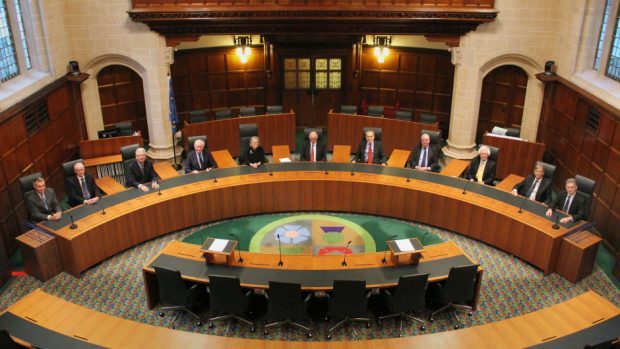Holyrood’s approval would be required if the UK Parliament tried to change its powers in the way Brexit will, the Supreme Court has heard.
The chief legal officer of the Scottish Government made the claim as he argued the formal negotiations could not be triggered without a vote by MSPs.
Lord Advocate James Wolffe QC said it was a “fallacy” to say that because an issue was reserved to Westminster it did not require the devolved parliament’s consent.
He was setting out his case on day three of the landmark legal challenge in London.
The Scottish Government believes the Scottish Parliament should be consulted before EU departure talks get under way.
This is in contrast to the position of the UK Government that the negotiations can begin without Holyrood’s go-ahead.
Earlier this week, Lord Keen, the Advocate General for Scotland, argued that Westminster was sovereign and could not be prevented from legislating on the matter.
But Mr Wolffe said Brexit would have a significant impact on Holyrood’s devolved powers and those of the Scottish Government.
And he stressed that if MPs wanted to change the powers in the same way through a bill at Westminster, a legislative consent motion (LCM) would be required.
If the 11 justices hearing the case agree with him, MSPs will get a vote.
He also argued that his points bolstered the argument for MPs to get a vote before the prime minister triggers the UK’s so-called divorce talks.
Only the Westminster Parliament – not the UK Government – could change Scotland’s devolved powers in this way, he argued.
He said that principle had been in place since the UK was founded in 1707, when the power to change Scotland’s laws was given to parliament, not the Crown.
Mr Wolffe told the court: “The advocate general’s argument where he points to the reservation of international relations in my submission is guilty of the fallacy that simply because something
is reserved, it cannot engage legislative consent convention.
“That is simply not the case.”
The appeal follows a ruling by the High Court last month that Theresa May does not have the power to use the royal prerogative to kick-start the Brexit process without the prior authority of the
Westminster Parliament.
The case is due to finish today, but a judgement is not expected until the new year.
